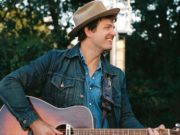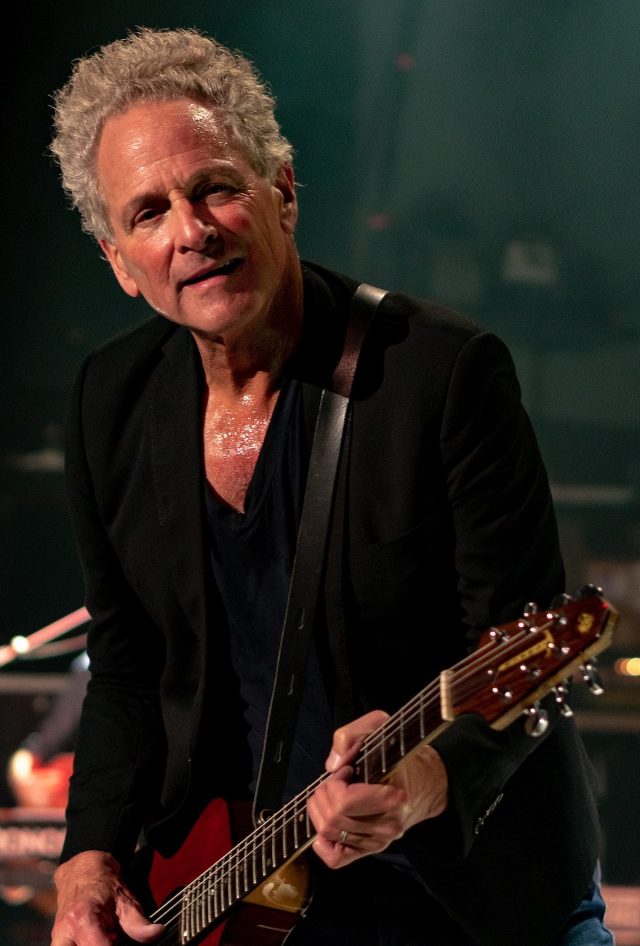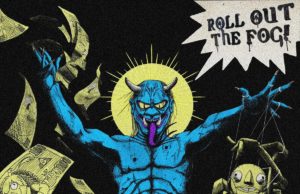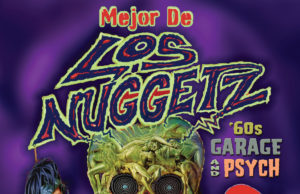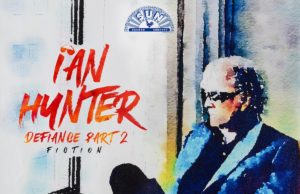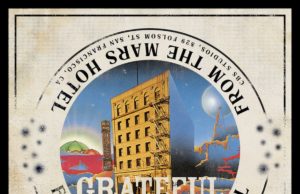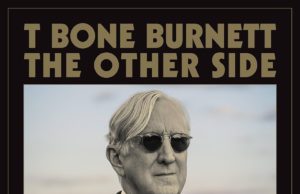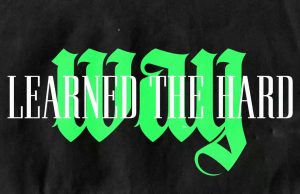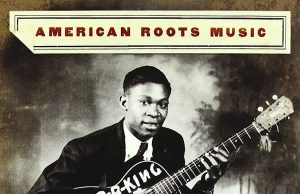Back in 2011, I was fortunate enough to talk to then-Fleetwood Mac singer-guitarist Lindsey Buckingham when he was promoting his solo album Seeds We Sow. Since he just released the long-awaited, self-titled followup, it seemed like a good time to pull this interview out of the archive. Given the professionl and personal events of his life over the past couple of years, some of it feels a little ironic. So be it. As usual, I added a few questions and answers that were initially cut for print space. Enjoy.
Lindsey Buckingham loves to go his own way – provided he can come back. The 61-year-old singer-guitarist says he has the best of both worlds these days: A career that balances his Fleetwood Mac duties with the freedom to make solo albums.
“On the one hand, I’ve got this large machine,” the California rocker explains. “And then on the other hand, I’ve also had this small machine. And I’ve been very fortunate to have both of those and to have those support each other. One serves as a palate cleanser for the other. You know, we all make choices in life. And I think I’ve been very lucky with those choices. Whether they were conscious or just the fate that was cast upon me — however you want to look at it, I think my karma as an artist and as a man has been pretty good. This is the best time of my life right now. So hopefully I did something right.”
Buckingham’s karma-speak is fitting: On his fifth solo studio album (and first independent release) Seeds We Sow, the Rock and Roll Hall of Famer ponders life, fate, destiny and consequences over a one-man-band backdrop of drum machines, home-studio production and his folk-inspired needlepoint fretwork. As he prepped his latest palate cleanser, a jovial Buckingham came clean on his skinny jeans, the next Mac attack and what’s up with that recurring Saturday Night Live spoof.
You aren’t known as incredibly prolific. But it’s only been three years since your last album Gift of Screws. What lit a fire under your butt?
Well, some of that was by design and some wasn’t. Many things intended to be solo work have been folded over into Fleetwood Mac albums. That’s happened three or four times. But I did take a three-year period to do two solo albums back to back — and to accomplish that, I had to say to Fleetwood Mac, ‘Leave me alone! Don’t bother me!’ (Laughs) And when we got off the road this last time, I wasn’t really planning a solo project. I thought maybe we’d be doing some more dates. But it didn’t happen; time opened up and I just filled it. I had no agenda, and that’s probably why it turned out so well. It was just one of those things.
There’s a lot of retrospection in the lyrics, along with talk of consequences and making amends. Anything you’d care to get off your chest?
One of the things I like about my lyrics is they tend to be open to interpretation, and more so as time goes by. I take that as progress. I don’t know if you want to nail it down in too literal a sense. But generally speaking, there is a kind of theme that has to do with the fact that the choices we make add up to good or ill in the world. And there’s a karmic element. But that can apply to relationships or the world in general. It all seems to follow a general plot.
How about your own karma? Are you happy with that?
I am, actually. It’s very interesting: A lot of times, if you want to talk about choices, the choices you make in the moment are not always easy to gauge in terms of whether they’ve been good choices or not. Sometimes it takes the perspective of time to really know if those choices have played out in a way you would be happy with. And when I look at my life now, as a musician, as a writer, as an artist, I think i’m happy with the line I’ve been able to walk and the road I’ve been able to negotiate for myself. There was a period in time when, probably, the choices I was making not particularly popular with the group of people i was hanging out with, namely the band, and possibly the record company, and maybe even some of the listeners. But I think in the long term it’s proven to be the road I was happy I took. So in retrospect, those choices have played out well.
What about your choices on the personal side?
Well, if you want to look on the personal side of things, I probably in decades past saw a lot of people that I know who were either spouses or parents or both who were not really there for their families. Because i guess we all were living a certain lifestyle that we thought we had to live at a certain time. And I did not want to be one of those people, so I was very lucky to wait. I have three children now, but I don’t have children from a previous marriage. There was nothing I screwed up on that level. And so I was just lucky enough to meet someone and start having children relatively late when I was ready for it And a lot of that other garbage was out of the way.
You’re playing pretty much everything on this album again, right?
Yeah, and to some degree, even more so than in the past. Because on Gift of Screws, there were a lot of songs that had been sitting around and waiting to find a home, and a lot of those had John McVie and Mick Fleetwood on them. That’s probably one of the reasons Warner Brothers liked that album, because it harkened back to something that was more familiar and marketable to them. And yes, when you work with a band, it’s a bit like moviemaking. When you work on your own, it’s more like painting, it’s one on one. I enjoy having both those processes to delve into. They both end up giving you different results. When I work alone and I’m pretty much playing everything myself, you put yourself in this solitary meditative environment day after day, you’re pretty much slopping colours on the canvas. You can start with much less. You can work from a more abstract place. And the work will lead you in a direction. I think when you’re working with other people, obviouosly there’s got to be more structure and a little more literal approach to everything.
A lot of singers lose their high notes as they age. Your range actually seems to be expanding. Just how tight are your pants?
(Laughs) Well, I do wear skinny Levi’s. So possibly I’m squeezing in the right place. I’ll just leave it at that.
Your guitar seems to be the focal point on Seeds We Sow. Has playing become more important to you over the years?
Not really. Because I was not taught and don’t read music, I don’t approach it academically. I don’t play every day. I don’t sit and practise scales. I don’t even know scales. If there’s an academic aspect to it, it’s about intellectualizing how to approach songs. When I started playing at about seven, I had a chord book and an older brother who had 45s, and I was just learning songs. And it’s always been about songs. But as far as the guitar becoming more important or prominent, a few years ago the song Big Love made its way to the stage as a guitar-and-voice piece. It became such a touchstone for me in terms of using the guitar to do the work of a whole track. And that approach has expanded over the years.
I am required by rock critic law to ask what’s next for Fleetwood Mac.
There’s nothing on the books and we haven’t really opened up a discussion. But Fleetwood Mac always comes back around. I would be shocked if there wasn’t some talk about picking up Fleetwood Mac again in 2012. It would be nice, possibly, to do another album. We haven’t done that for a few years.
What impact has that SNL skit had on your life?
Not very much, really. When I first heard about that, I was perplexed. I took it as a compliment, but my initial reaction was, ‘That’s kind of obscure.’ Maybe that’s my own self-esteem issues. And maybe the obscurity was why it was good. But they really nailed it — they had my exact outfit from the last tour. It’s very funny.
Do people on the street yell ‘What’s up with that?’ at you?
No. And I do not have a problem with people approaching me or any invasion of my personal space at all. I think probably people occasionally — or perhaps more than occasionally if I’m in a public situation — they may pick up on who I am. But it doesn’t elicit any sort of rabid response where people come up and start talking to me very often. And that’s nice, because you see these people who have to live their lives in a certain way because the parasites are always on them, and I’m just glad that’s not the case, you know.
I can’t believe the 1973 Buckingham Nicks LP you and Stevie made has never been on CD. It’s about time, isn’t it?
It is about time. Stevie and I actually spent a good deal of time together when she was finishing her album, and that was one of the things we touched on, so we’re working on that.
You have to – if only because that topless shot of you two may be the most awesome album cover ever.
(Laughs) I’ll pass that on!



